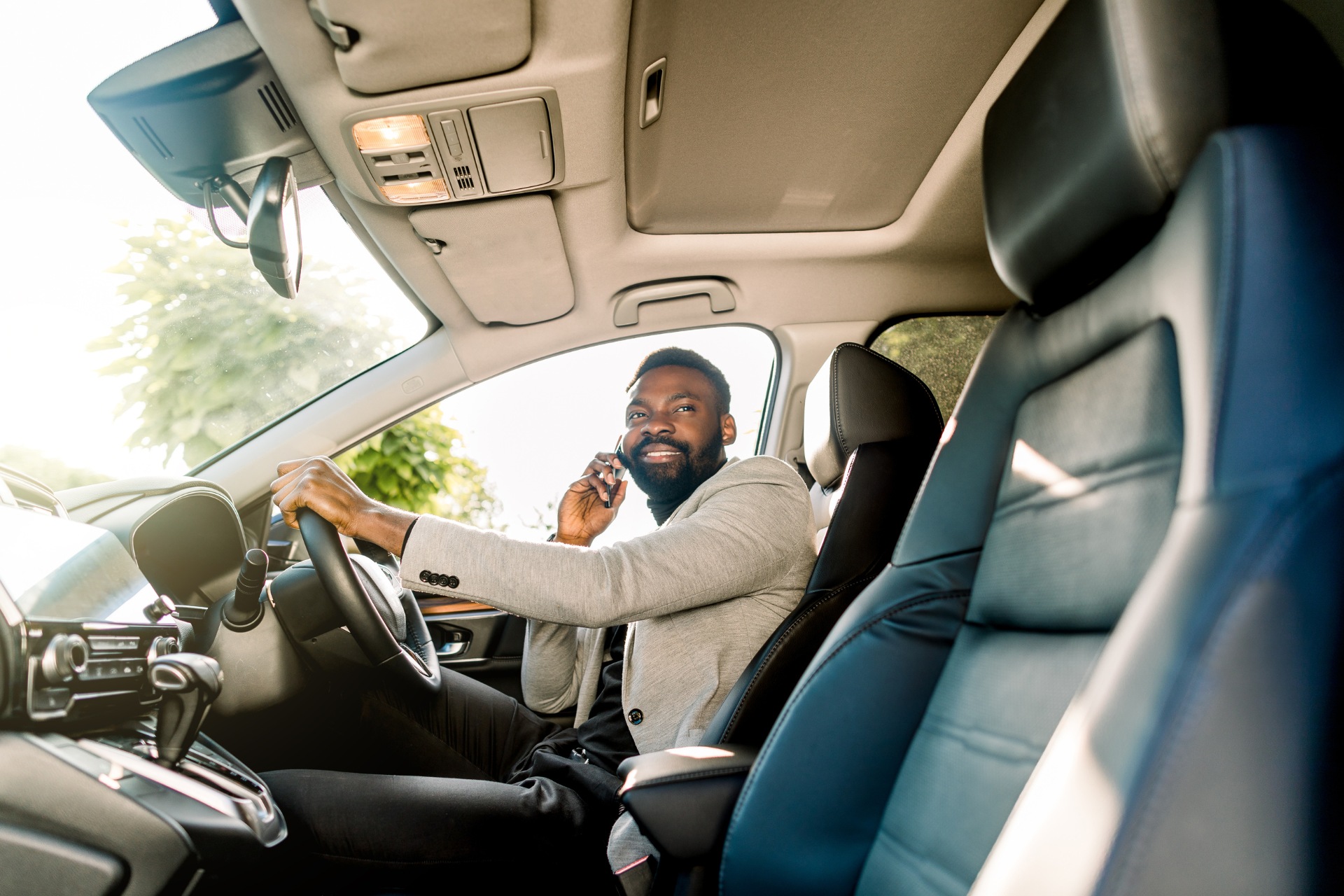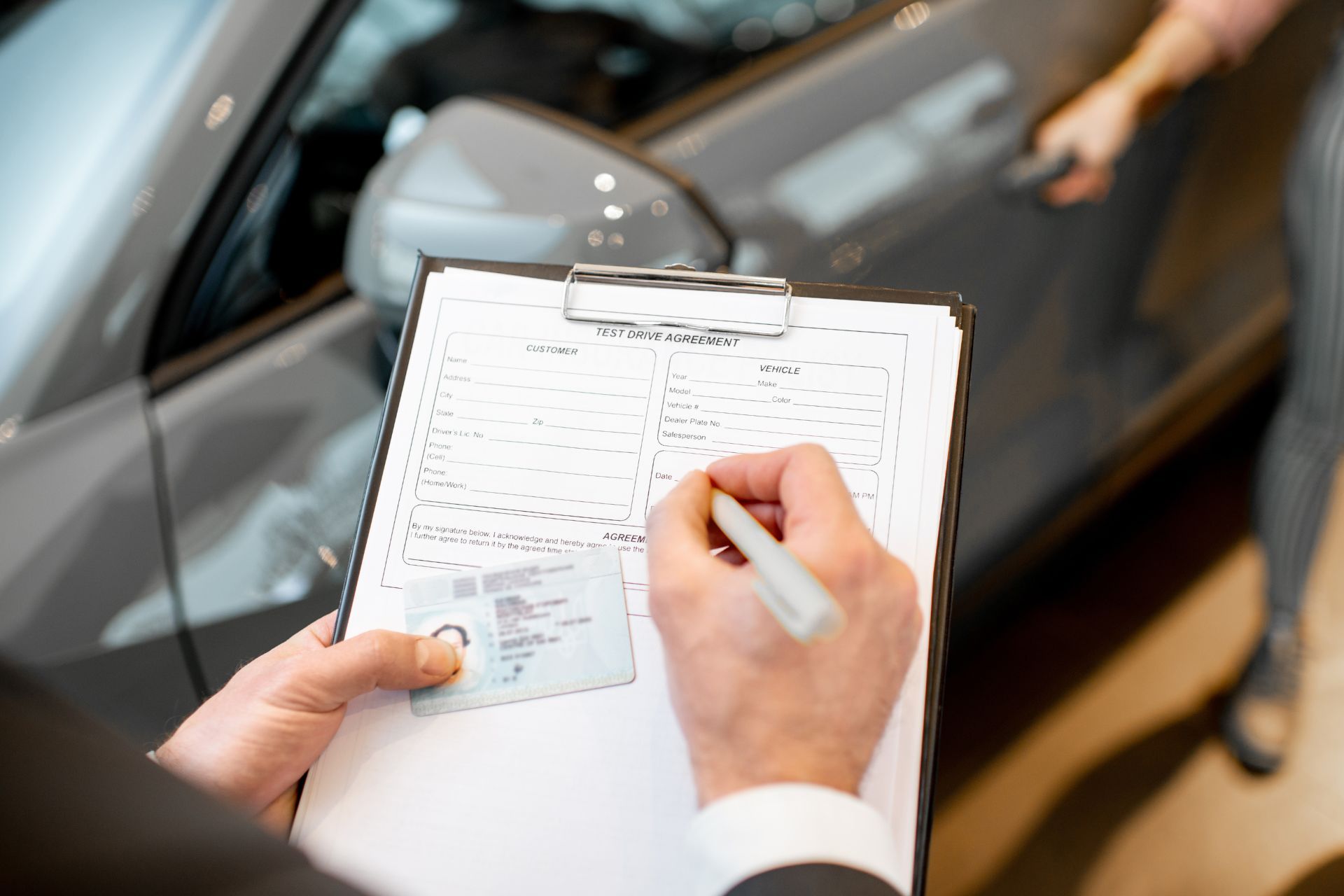Non Driver Insurance - Do You Mean Non-Owner Car Insurance? Here's Everything You Need to Know
29 September 2025
See How We're Different
or call us: (727) 620-0620

When it comes to car insurance, many people are familiar with the standard policies that cover vehicle owners and regular drivers. But what if you don’t own a car, yet occasionally drive someone else’s vehicle? Or perhaps you’re a rideshare driver who uses different cars? This is where non-owner car insurance comes into play—a lesser-known but essential type of coverage for drivers without a personal vehicle.
Understanding non-owner car insurance can be confusing, especially since terms like “non-driver insurance” are sometimes mistakenly used to describe it. In this comprehensive guide, we’ll clarify what non-owner car insurance is, how it works, who needs it, and why it might be a smart choice in today’s evolving auto insurance landscape. Along the way, we’ll also explore important trends and statistics that highlight the growing relevance of this coverage.
Before diving in, it’s worth noting that nearly 14% of U.S. drivers were uninsured in 2022, a rise from previous years, which underscores the risks of driving without proper protection. For more details on this trend, you can check out the Insurance Research Council’s survey on uninsured motorists.
What Is Non-Owner Car Insurance?
Non-owner car insurance is a specific type of liability coverage designed for drivers who do not own a vehicle but still drive cars they do not own. Unlike traditional auto insurance policies that cover a specific vehicle, non-owner policies provide liability protection when you operate someone else’s car.
This coverage typically includes bodily injury and property damage liability. In other words, if you’re at fault in an accident while driving a car you don’t own, non-owner insurance can help cover the costs related to injuries or damage to other people’s property. However, it generally does not cover damage to the vehicle you’re driving.
Alaina Hixson, director of sales and operations at The Churchill Agency, explains that non-owner car insurance “generally covers bodily injury and property damage liability when you're at fault in an accident,” making it a crucial safety net for non-owners behind the wheel. This type of insurance is especially useful for people who frequently rent cars, borrow vehicles from friends or family, or drive for rideshare services but don’t have a personal car insured under their name.
Who Should Consider Non-Owner Car Insurance?
Non-owner car insurance is ideal for a variety of drivers:
- Occasional Drivers: Individuals who don’t own a car but occasionally drive borrowed or rented vehicles.
- Rideshare Drivers: Drivers working for companies like Uber or Lyft who use different vehicles or rent cars for their work.
- Young Adults and Students: Those who may not have their own vehicle but still need insurance coverage when driving.
- People Between Cars: Individuals who have sold their car and haven’t yet purchased a new one but still need to drive.
It’s important to note that non-owner car insurance does not provide comprehensive or collision coverage for the vehicle you’re driving. It only protects others from damages or injuries you cause, so if you want protection for the car itself, you’ll need to rely on the vehicle owner’s insurance or purchase additional coverage.
Moreover, non-owner car insurance can also be beneficial for those who may have a less-than-perfect driving record. If you’ve had previous accidents or violations, maintaining a non-owner policy can help you manage your liability risk while you work towards improving your driving history. This type of insurance can serve as a bridge, allowing you to legally drive while you seek to regain favorable rates or even consider purchasing a vehicle in the future.
Additionally, many non-owner policies are quite affordable, making them an attractive option for budget-conscious individuals. The premiums are typically lower than standard auto insurance because the coverage is limited to liability only. This means that for those who find themselves driving occasionally but don’t want the financial burden of a full auto insurance policy, non-owner car insurance can provide a practical solution without breaking the bank.
How Does Non-Owner Car Insurance Work?
When you carry a non-owner car insurance policy, it acts as secondary coverage if you get into an accident while driving a vehicle you don’t own. Here’s how it typically works:
- Primary Coverage: The insurance policy of the vehicle’s owner is the primary coverage. If you’re involved in an accident, the owner’s insurance will be the first to pay out claims.
- Secondary Coverage: If the damages or injuries exceed the owner’s policy limits, your non-owner insurance may cover the remaining costs up to your policy limits.
This layered approach helps protect you financially in the event of a serious accident. However, if you cause damage to the vehicle you’re driving, non-owner insurance typically won’t cover those repair costs. That responsibility usually falls on the vehicle owner or their insurance.
It’s also worth mentioning that non-owner policies usually don’t cover medical expenses for the driver, uninsured motorist coverage, or personal injury protection, though some insurers might offer optional add-ons. Given the rise in uninsured drivers—about 14% of U.S. drivers were uninsured in 2022—having uninsured motorist coverage is an important consideration. Nearly three-quarters of U.S. drivers have some form of uninsured motorist coverage, with 74% having bodily injury coverage and 59% having property damage coverage.
Cost Factors and Pricing
Non-owner car insurance rates can vary widely depending on several factors, including your age, driving history, location, and the insurance company. Some non-owner policies can cost nearly $800 a year, though many are less expensive.
Because non-owner insurance provides liability coverage only and doesn’t cover a specific vehicle, it’s generally more affordable than full auto insurance policies. Still, costs can add up, especially if you have a history of traffic violations or live in an area with high accident rates.
Additionally, the type of vehicle you frequently drive can influence your premium. For instance, driving a high-performance sports car may result in higher rates compared to a standard sedan, even if you don’t own the vehicle. Insurers assess the risk associated with various types of vehicles and adjust their pricing accordingly. Furthermore, your credit score can also play a significant role in determining your non-owner insurance rates, as many companies use credit information to gauge risk. A better credit score often translates to lower premiums, making it beneficial to maintain good financial health.
It’s also important to shop around and compare quotes from multiple insurance providers. Each company has its own underwriting criteria and pricing strategies, which can lead to significant differences in the premiums offered. Some insurers may provide discounts for safe driving records, while others might offer lower rates for bundling non-owner insurance with other policies, such as renters or homeowners insurance. Taking the time to evaluate these options can help you find the best coverage at a price that fits your budget.
Why Non-Owner Car Insurance Is Increasingly Relevant
The auto insurance landscape is shifting in ways that make non-owner car insurance more relevant than ever. Recent data shows that driving violations have increased by 17% year over year in 2024, surpassing levels seen in 2019, according to the LexisNexis® U.S. Auto Insurance Trends Report. This uptick in violations can lead to higher insurance premiums and more claims, which in turn affects how insurers price their policies.
At the same time, the number of uninsured drivers has risen, with about 14% of U.S. drivers uninsured in 2022. This trend increases the risk for insured drivers and highlights the importance of having adequate liability and uninsured motorist coverage.
Additionally, the U.S. auto insurance market continues to grow, with a market size exceeding $362 billion in 2023, marking a 1.7% increase from the previous year. This growth reflects the ongoing demand for various types of insurance products, including non-owner policies, as more people seek flexible coverage options that fit their lifestyles.
Non-Owner Insurance and Vehicle Ownership Trends
There is also an interesting dynamic regarding vehicle ownership and insurance. A study by the California Department of Insurance found that about 10% of vehicle owners owned an uninsured vehicle, with 80% citing non-use or cost as the main reasons for not insuring. This points to a segment of drivers who may benefit from non-owner insurance if they occasionally drive other vehicles but choose not to insure their own.
For those who don’t own a vehicle but still drive regularly, non-owner insurance offers a practical solution to stay protected without the expense of full coverage on a car they don’t own. This type of insurance is particularly appealing to individuals who rely on car-sharing services, rental cars, or borrowing vehicles from friends and family. As urban living becomes more prevalent and car ownership declines among younger generations, the demand for non-owner insurance is likely to increase. Furthermore, with the rise of gig economy jobs that require driving, such as food delivery or ridesharing, more people are finding themselves in need of flexible insurance options that can adapt to their varied driving habits.
Moreover, non-owner car insurance can also provide peace of mind for those who may have had previous driving infractions or are in the process of rebuilding their driving records. By maintaining continuous insurance coverage, even without owning a vehicle, drivers can demonstrate responsibility and potentially lower their future premiums when they do decide to purchase a car. This proactive approach to insurance not only helps mitigate risks associated with driving but also aligns with a growing trend of responsible financial planning among consumers.
How to Get Non-Owner Car Insurance
Obtaining non-owner car insurance is relatively straightforward. Most major insurance companies offer this type of policy, and you can usually get a quote online or by speaking with an agent. When applying, you’ll need to provide information such as your driver’s license number, driving history, and sometimes your reason for needing the policy. This process is designed to be user-friendly, allowing you to gather the necessary information quickly and efficiently, which can be particularly beneficial for those who may not be familiar with insurance jargon.
Since non-owner insurance is liability-only, it’s important to ensure that the policy limits meet your needs and comply with your state’s minimum requirements. You may also want to ask about optional coverages or endorsements that can enhance your protection. For instance, some insurers offer additional coverage for rental cars or even for vehicles borrowed from friends or family. Understanding these options can provide peace of mind, especially if you frequently rely on others’ vehicles for transportation.
Keep in mind that non-owner insurance is not a substitute for a standard auto insurance policy if you own a vehicle. It’s designed specifically for those who don’t own a car but need liability coverage when driving other vehicles. This type of insurance is particularly useful for individuals who may be in transitional phases of their lives, such as students or those who have recently moved to a new city and are relying on car-sharing services or rentals.
Tips for Choosing the Right Policy
- Compare Quotes: Prices can vary significantly between insurers, so shop around to find the best rate. Utilizing online comparison tools can save you time and help you make informed decisions based on your specific needs.
- Check Coverage Limits: Make sure the liability limits are adequate to protect your assets in case of a serious accident. It’s wise to consider your personal financial situation and potential liabilities when selecting these limits.
- Understand Exclusions: Know what is and isn’t covered, especially regarding damage to the vehicle you’re driving. Some policies may have specific exclusions for certain types of vehicles or situations, so clarity on these points is essential.
- Consider Your Driving Habits: If you drive frequently or for work, you might need more comprehensive coverage or a different policy. Additionally, if you often drive in high-traffic areas or take long road trips, it may be worth discussing these factors with your insurance agent to ensure you have adequate protection.
Conclusion: Is Non-Owner Car Insurance Right for You?
Non-owner car insurance fills an important gap for drivers who don’t own vehicles but still need liability protection when behind the wheel. Whether you’re an occasional driver, a rideshare operator, or someone between cars, this type of insurance can provide peace of mind and financial protection in case of an accident.
With the rise in uninsured drivers and increasing traffic violations, having the right coverage is more critical than ever. Non-owner car insurance offers an affordable way to stay protected without the commitment of insuring a vehicle you don’t own.
For those interested in learning more or obtaining a policy, it’s advisable to consult with insurance providers and review your specific needs carefully. Understanding the nuances of non-owner car insurance can help you make informed decisions and drive confidently, knowing you have the right coverage in place.
To stay updated on trends affecting drivers and insurance, consider reviewing reports like the LexisNexis® U.S. Auto Insurance Trends Report and insights from industry experts.





